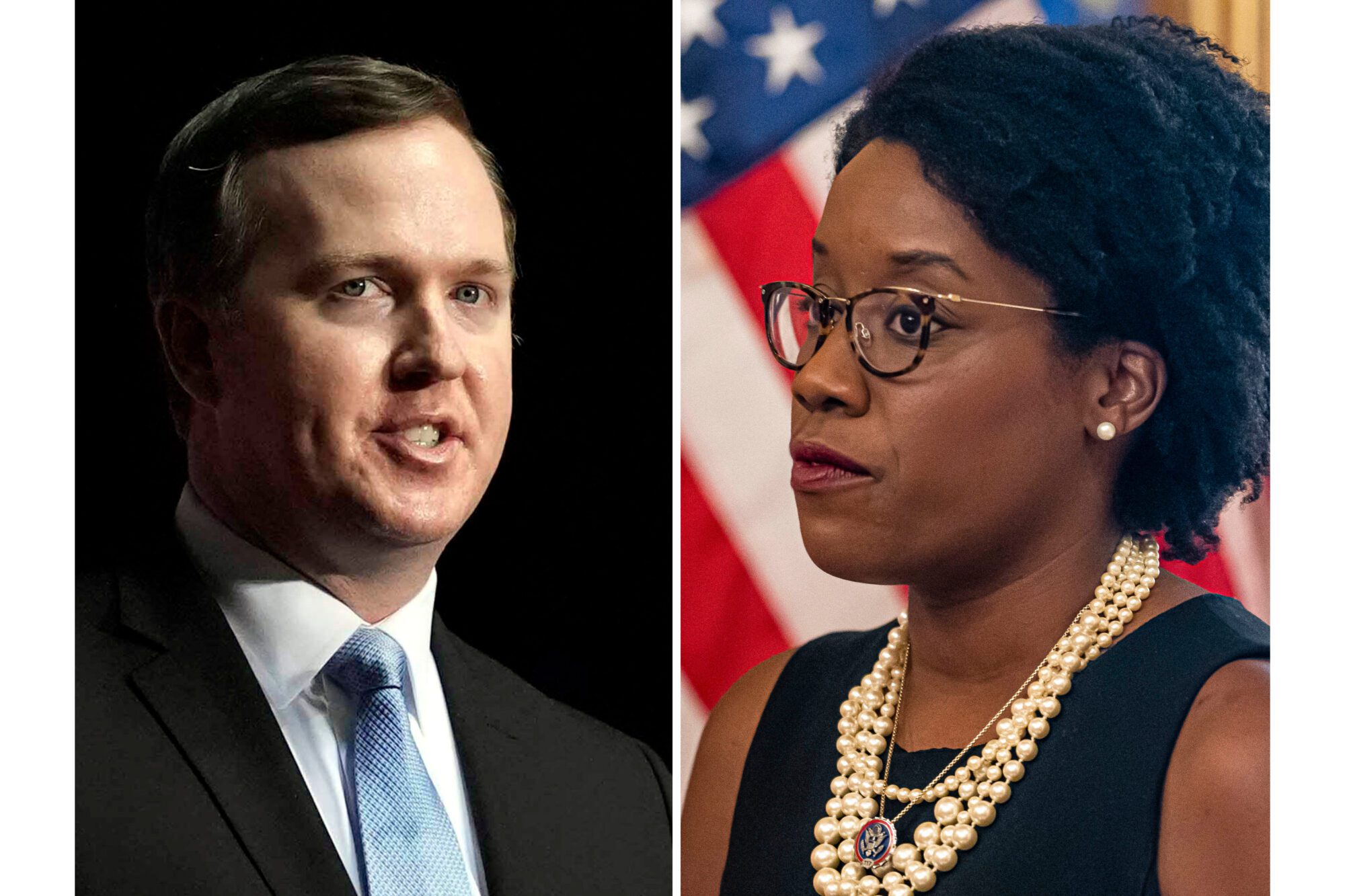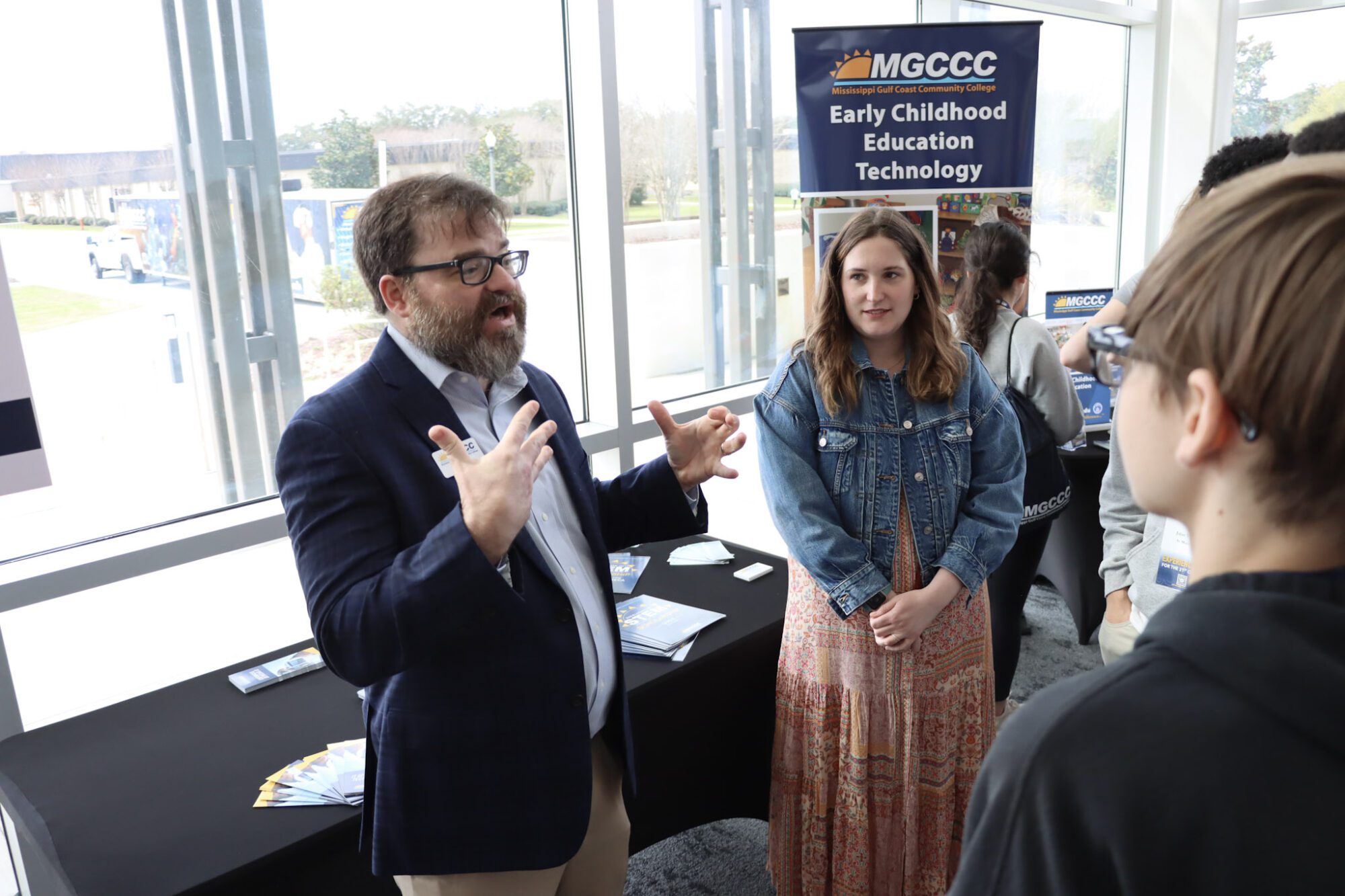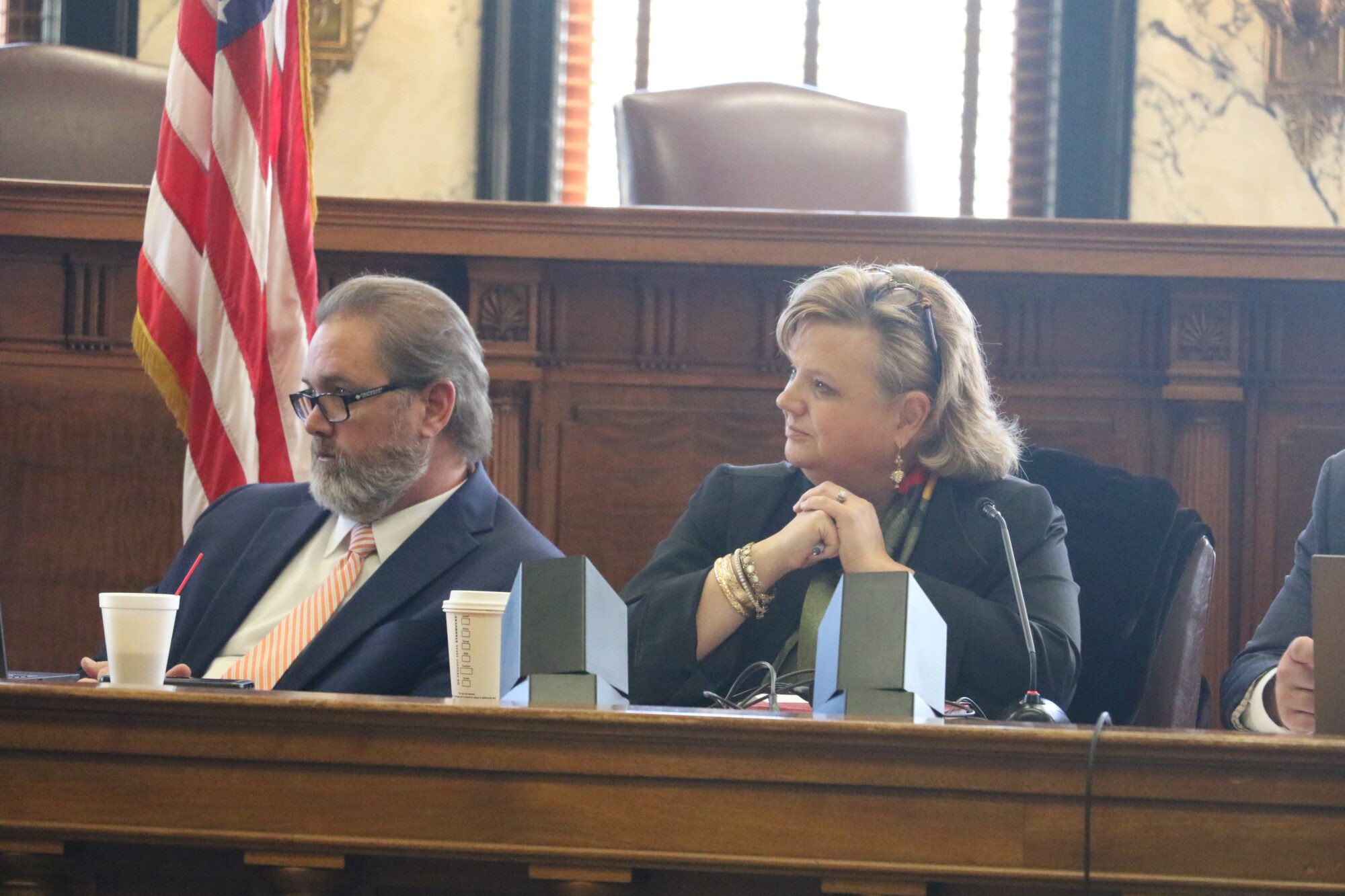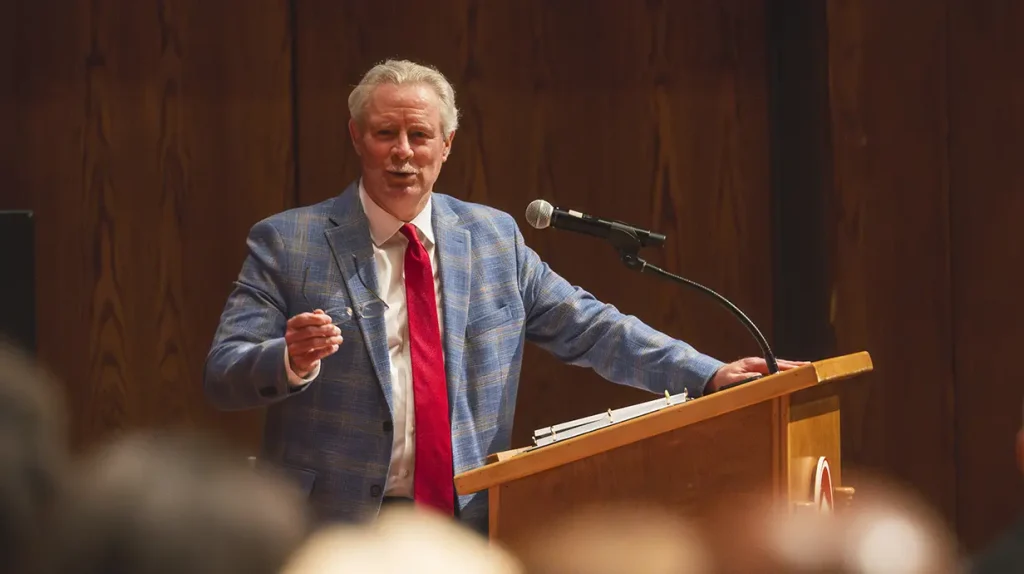RELEASE:
Gov. Phil Bryant Delivers 2015 State of the State Address
Tax Cuts for Working Mississippians, Workforce Investment, Contract Reform among Highlights
JACKSON – In his fourth State of the State address, Gov. Phil Bryant presented his priorities to lawmakers for the 2015 legislative session. Major proposals include an income tax cut for working Mississippians and a $50 million investment in workforce training.
“In the three years that have passed, we have achieved remarkable things together,” Gov. Bryant said. “We have created one of the most job-friendly states in America…For the third year in a row, we have been awarded a Silver Shovel…and The American Economic Development Institute also ranks our Mississippi Development Authority as number nine in the nation among state economic development entities.”
Gov. Bryant highlighted the growing strength of Mississippi’s economy, as indicated by a decrease in the unemployment rate, an increase in job creation and a projected increase in personal income.
Workforce Development
“We realize that finding a job can and has changed lives for the better, so we must do all in our power to put people to work. Tonight, I am announcing the Keep Mississippi Working Fund—a program that will move nearly $50 million over the next two years without putting a demand on the General Fund.”
Due to reduced demand on Mississippi’s Unemployment Trust Fund, $50 million will instead be allocated for workforce training in high-demand industries. The Keep Mississippi Working Fund will not increase taxes.
The governor also called on the Legislature to fund a $3 million scholarship program for high school students in career tech programs to pursue skills certifications and academic degrees at Mississippi’s community and junior colleges.
“I believe with these two programs, we can focus on creating a world-class workforce. With that accomplished, our economic progress can be unlimited,” Gov. Bryant said of the workforce development initiative and scholarship program.
Economy
The governor highlighted Mississippi’s financial strength, as well, reporting that the state’s gross domestic product continues to exceed $100 billion, that revenue is projected to grow by almost $166 million for Fiscal Year 2016, that the state’s Rainy Day Fund is filled to its statutory limit and that the state’s credit rating remains a strong double A.
“In short, we pay our bills, save our money and invest wisely.”
Education
Governor Bryant reviewed the transformational public education reforms enacted under his administration and conveyed to lawmakers that his administration is working to put more money in Mississippi classrooms.
“To put more funding in the classroom, I signed into law a historic two-year $100 million teacher pay raise. Performance Based Pilot programs continue in 14 school districts and over $1 million has gone to teachers who are performing at the highest levels. We have also appropriated $65 million in the last three years for the National Board Certified Teacher Program.
“The Education Week Research Center ranks Mississippi as 19th in the nation for state expenditures on K-12 education as a percentage of state taxable resources. No less authority than the U.S. Department of Education lists our state as number twelve in the nation for school expenditures as a percentage of the state’s gross domestic product.
“My Executive Budget Recommendation increases MAEP funding by $53 million over the current year. Under my recommendation MAEP funding will reach nearly $2.2 billion or a 2.5 percent annual increase. Funding for K-12 overall will reach $2.5 billion. It includes $41 million for the second year of a $100 million teacher pay raise and $15 million for more reading coaches to assist in the literacy program within the Third Grade Gate.
“I believe most of us want to fund reforms in education that work and make certain the money goes to the classroom.”
The governor also called on the Legislature to send the Equal Opportunity for Students with Special Needs Act to his desk for signature.
“Mississippi children with special needs, and their parents, deserve nothing less.”
Tax Cut for Working Mississippians
“Each year we have worked together to balance our budget and this year will certainly be no different, with one exception. This year I intend to take the bold and controversial position that when times are good, we shouldn’t spend all the money.
“In fact, I will ask you to give a raise to the people who need it most—the working people of Mississippi. I have proposed a Working Families Tax Cut that would provide an income tax credit to working Mississippians earning up to $52,000 annually.
“I realize the legislative process will generate additional ideas to provide tax relief to Mississippi families. The good news is I am open to any number of tax cuts that put money in the pockets of working Mississippians. In short, put a tax cut on my desk, and I will sign it.”
State Contract Reform
“Last year also brought us man made challenges such as those at the Department of Corrections—this even as we passed the most comprehensive corrections and criminal justice reform in this state’s history. But, as with all challenges, there exist opportunities. With a stellar independent task force to review all contracts within the department, we will make changes to add accountability to the Department of Corrections and beyond. With your help, we will bring long needed reform to laws governing state contracts, including an overhaul of our state’s contract review board.
“I will also ask for your help with several reforms to narrow the use of emergency and single source contracts across state government. We will ask to transfer control of all corrections farming land to the authority of the Secretary of State and place the corrections inmate welfare account at the Treasurer’s Office to separate controls of income and expenditures. With your support and the leadership of Marshall Fisher, we will reform the Department of Corrections and make it a system of efficiency, accountability and outcomes.”
“This is a new year for Mississippi and for all of us, filled with promise and challenges. Being an optimist, I always look for greater possibilities. I believe Mississippi can and will improve its public education system, build a stronger economy, become a healthier place to live and put our people to work…But if we are to do so, we must set aside our petty, political differences and seek real solutions in both our economic and social environments.
“Last year, I asked you to make a simple but profound change to our state seal. Some said it was a waste of time, but we knew better. You see by simply adding our national motto to the Great Seal of the State of Mississippi, we professed our understanding of a higher power over the affairs of men. We expressed a faith that this wonderful state will continue to be blessed. Let us now and forever boldly and without apology affirm, In God we trust.”
Full Text of Governor Bryant’s 2015 State of the State Address
Thank you Mr. Lt. Governor, Mr. Speaker and Mr. Speaker Pro-Tem. It is my high honor to be with all of you at this joint session. I welcome to the platform President Pro-Temp of the Mississippi Senate, Senator Giles Ward. I am mindful tonight of the absence of my friend, Terry Brown. Each time we have appeared here, Terry welcomed me with a strong handshake and Deborah with a prolonged and enthusiastic hug. We will miss our friend. But as it is often said, “He is with us tonight. He only has a better seat.”
Three years ago, I stood at this podium and delivered my Inaugural Address. The weather had forced us inside to gather in this historic chamber for the swearing-in ceremonies. I will always remember it was in this chamber I began my life in public service. Twenty years later, it was where Deborah and I began our journey as your governor and First Lady. I am fairly certain some in this chamber may not agree with all of my policies as governor. But I believe it is safe to say there is universal agreement that Deborah has been one of our state’s finest first ladies. From reading to children in classrooms in every county in the state to being a first responder after the Louisville tornado, she has served this state and its people with grace and commitment. I often think the good Lord allowed me to become governor just so Mississippians would have Deborah as their First Lady.
In the three years that have passed, we have achieved remarkable things together. So let us look at some of the positive facts about Mississippi: we have created one of the most job friendly states in America. According to Area Development magazine, Mississippi ranks in the top ten states in the nation for economic development. This is a ranking based on input from site selectors across the nation—men and women whose profession is to know each state’s economic environment and potential for productivity. For the third year in a row, we have been awarded a Silver Shovel, representative of breaking ground on a number of new businesses. Only 20 states each year receive this prestigious award. One of my personal favorites is the report that rates Mississippi number five in America for growth in women owned businesses—this according to American Express. The American Economic Development Institute also ranks our Mississippi Development Authority as number nine in the nation among state economic development entities. I want to personally thank Director Brent Christensen and his team at MDA for a job well done. It’s great to have nationally ranked football teams, but we need world-class economic developers as well. As I often say, economic development is a team sport.
Let us look at some other positive indicators. Three years ago, the unemployment rate in Mississippi was 9.8 percent. Today, it is around 7.3 percent. According to our State Economist, Mississippi added 8,800 more jobs in 2014 than in 2013. Projected real personal income growth in Mississippi during 2015 is expected to be 3.9 percent. We also know that personal income buys even more in Mississippi than it would in other states because of our low cost of living. The Tax Foundation has found income in Mississippi goes 16 percent further than the national average. So for every $100 in income, a Mississippian would make $116 compared to other states. So many new employees who move to Mississippi get a raise. If they move here from Washington, D.C., they could get around a 40 percent raise. Obviously, we would need to retrain most of them.
There are other reliable indicators of the health of our economy. If we look at the amount of individual income tax collected in Mississippi from Fiscal Year 2011 to Fiscal Year 2014, we see a nearly $300 million increase. It would appear working Mississippians are making more money and revenues are rising. We have also seen a decline in the number of people in our state who are receiving unemployment payments. From November 2013 to November 2014, there has been a reduction of 24 percent. These facts may not be printed in a magazine or included in a study, but they prove positive momentum exists.
While we are discussing economic development, let me take this time to assure you, the standards for investing in economic development projects under this administration have been demanding. We thoroughly examine each investment for financial stability, probability of success and the company’s history. Our qualifying standards are high and thorough. For your peace of mind, we intend to keep them that way.
Do not misunderstand my position. We are not yet where we need to be to move to a new level, but we are moving ahead and should not be timid about recognizing the good in Mississippi. Others will certainly revel in the bad. But as for me, I am proud of my Mississippi.
Now we know progress is never immediate, and it is often made during the most difficult of times. The key to eventually obtaining lasting success is to stay the course and to never abandon your core beliefs and historic principles. For example, we realize that finding a job can and has changed lives for the better. So we must do all in our power to put people to work.
Tonight, I am announcing the Keep Mississippi Working Fund, a program that will move nearly $50 million over the next two years into workforce training efforts without putting a demand on the General Fund. Mississippi has one of the healthiest Unemployment Trust Funds in the nation. Due to the decreased demand on the unemployment fund, we will be allocating those dollars for training purposes. These workforce-training dollars will be managed by the State Workforce Investment Board and committed to training programs at our community colleges. The Mississippi Economic Council’s Blueprint Competitiveness Study identified the need for more skilled labor in Mississippi and a centralized agency to manage workforce development. Summed up, we will keep Mississippi working by investing more in skills training at our community colleges and having faith in Mississippi workers that they can help build the future.
I have also requested $3 million in my Executive Budget Recommendation to begin the Mississippi Works Scholarship Fund. This would offer a student in any high school involved in a career readiness curriculum who maintains a C average an opportunity to continue that course of study through a community college on a full scholarship. As a blue-collar kid, I worked my way through junior college, but today’s conditions are different and tuition is more challenging. Our working class kids need an even break to advance their skills. Let us give them a chance to be skilled craftsmen and women and find them a job.
I believe with these two programs, we can focus on creating a world-class workforce. With that accomplished, our economic success can be unlimited. We will keep breaking ground and cutting ribbons across the entire state and winning more Silver Shovels. I will admit to being an eternal optimist who believes Mississippi’s best days lie ahead and within our grasp.
Tonight I can report the State of Mississippi is in the best financial condition in recent history. Our hard work has begun to make measured progress. Mississippi’s Gross Domestic Product exceeded $100 billion in 2012 for the first time in history and has continued to do so each year since. In the last three years, our state’s revenue has cumulatively grown almost 10 percent. Revenue for Fiscal Year 2016 is projected to grow by $166 million. Our budget now uses little, if any, one time revenues for recurring expenses, and our Rainy Day Fund is filled to its statutory limit. Because of our state’s judicious borrowing and refinancing when interest rates are advantageous, our state’s credit rating remains a strong double A. In fact, we have retired as much debt as we have issued with the exception of economic development financing which has shown an $11 return for every $1 invested over the last three years. In short, we pay our bills, save our money and invest wisely.
Health care continues to be an issue of debate in Mississippi. Even without expansion, the Mississippi Division of Medicaid’s General Fund budget request this year is nearly $1 billion. The woodwork effect and other provisions of the Affordable Care Act have already resulted in an additional 71,000 Medicaid recipients, causing budget increases we can ill afford. To make matters more challenging, this number is projected to rise to 90,000 by July 1.
Realistically, the conditions surrounding health care are even more uncertain than before. I fully expect dramatic changes in the Affordable Care Act with Republicans in charge of both houses of Congress. A number of the new majority were sent to Washington promising to repeal the Affordable Care Act—an action Congress has attempted in whole or in part more than forty different times. I do believe we will see some positive changes proposed, such as portability, national tort reform and health care savings accounts. Another positive reform I am encouraging is the restoration of Medicare and Medicaid DSH payments. These payments were originally designed to defray the costs of uncompensated care.
In an effort to assist our hospitals, I have reached out to our Congressional delegation to suggest the portion of the Affordable Care Act that ends Medicaid and Medicare DSH payments be suspended. This would return revenue to hospitals, which continue to provide uncompensated care even in states where expansion has occurred. Congress passed similar provisions restoring the Medicaid DSH payments, and restoration of funding for DSH payments was even a part of the President’s budget. Obviously, elimination of Disproportionate Share Hospital payments is a portion of the law that should have been read before it was passed.
Most every state’s success is largely judged by its education system. Admittedly, our public education system has been a challenge for as long as any of us can remember. In fact, there is no recorded history of Mississippi’s public education system that shows statewide success. However, I believe the transformational changes brought about by the Mississippi Legislature in the past three years will finally begin to show progress. A brief review can begin with the Literacy Program that will end social promotion at the critical point of entering the fourth grade. Charter schools for the first time in Mississippi history will offer hope to those children trapped in failing school districts. Funding early childhood learning programs began in our first Legislative session together, and this year I will support doubling the funding for the Pre-K Collaborative Program with a total appropriation of $6 million. Because of our success, Education Week ranks Mississippi number nine in the nation in pre-school enrollments.
To put more funding in the classroom, I signed into law a historic two-year $100 million teacher pay raise. Performance Based Pilot programs continue in 14 school districts and over $1 million has gone to teachers who are performing at the highest levels. We have also appropriated $65 million in the last three years for the National Board Certified Teacher Program. Nationally certified teachers can receive a $6,000 annual salary increase. Your commitment to this program has resulted in Mississippi becoming number seven in the nation for Board Certified teachers. As I have said many times, we must find the best teachers possible and pay them well.
You and I together have offered complete scholarships to students achieving high marks on their ACT and who want to become teachers. We have, working with the Institutions of Higher Learning, increased the demands on students who major in education in our universities. And we have put into place a dyslexia training program for teachers and funded scholarships to help with this training.
I can assure you from personal experience, this response to dyslexia will result in direct benefits. This reading disorder is the number one reason children drop out of school. If we confront it aggressively, we can see a dramatic decrease in our state’s dropout rate and help turn around our reading scores for thousands of Mississippi children.
This year, we must also do all in our power to help children with special needs. The Equal Opportunity for Students with Special Needs Act will empower parents with educational choice to get their children the services they need. When only 22.5 percent of special needs children graduate from high school, something is terribly wrong. I call on you to send this bill to my desk. Mississippi children with special needs, and their parents, deserve nothing less.
Now let’s spend a moment on the reality of education funding. The Education Week Research Center ranks Mississippi as 19th in the nation for state expenditures on K-12 education as a percentage of state taxable resources. No less authority than the U.S. Department of Education lists our state as number twelve in the nation for school expenditures as a percentage of the state’s gross domestic product. My Executive Budget Recommendation increases MAEP funding by $53 million over the current year. Under my recommendation MAEP funding will reach nearly $2.2 billion or a 2.5 percent annual increase. Funding for K-12 overall will reach $2.5 billion. It includes $41 million for the second year of a $100 million teacher pay raise and $15 million for more reading coaches to assist in the literacy program within the Third Grade Gate. I believe most of us want to fund reforms in education that work and make certain the money goes to the classroom.
Each year we have worked together to balance our budget and this year will certainly be no different, with one exception. This year I intend to take the bold and controversial position that when times are good, we shouldn’t spend all the money. In fact, I will ask you to give a raise to the people who need it most—the working people of Mississippi. I have proposed a Working Families Tax Cut that would provide an income tax credit to working Mississippians earning up to $52,000 annually. It is non-refundable and would be a tax dividend subject to revenue growth and filling the Rainy Day Fund. I realize the legislative process will generate additional ideas to provide tax relief to Mississippi families. The good news is I am open to any number of tax cuts that put money in the pockets of working Mississippians. In short, put a tax cut on my desk, and I will sign it.
2014 had its challenges just as every year does. Nothing is ever perfect or controllable. On April 28, a record 23 tornadoes struck our state. Particularly hard hit were Louisville and Tupelo. Of the 14 people who lost their lives that tragic day, ten were in the Louisville area. President Pro-Tem Giles Ward’s home was totally destroyed, as were so many others. The hospital and an extended care facility were badly damaged. Some of the town’s biggest employers, including the Winston County Medical Center and Natron Wood Products, were closed. As always in times of disaster, Mississippians pulled together and got to work. The city, county and state responders set about saving lives and comforting victims. The officials joined the private sector, our Mississippi National Guard and faith-based organizations to begin rebuilding in all the affected areas. Within 21 days, a modular hospital was opened—FEMA’s first ever success with such a system. And I am proud to say that Natron Wood Products will reopen as Winston Plywood and Veneer and will become one of the largest plywood manufacturers in North America. Now that’s recovery Mississippi style. Joining us tonight is someone who is very important to that recovery—Kurt Liebich, CEO of Winston Plywood’s parent company, New Wood Resources. Please help me welcome Kurt.
On December 23, 2014, five tornadoes struck again with the hardest hit areas in Marion and Jones counties. These storms took the lives of five Mississippians, including the brother of Senator Billy Hudson. Homes were destroyed, and lives were forever changed. Once again we wept and prayed and thanked God more were not taken. Then we went to work. On Christmas Eve, I toured the damage and witnessed how the joys of the Christmas season were shattered for so many. But once again we became Mississippi strong. Since that time, more than 3,200 volunteers have worked more than 19,000 hours. Private donations have exceeded a quarter of a million dollars for tornado victims. The gift of hope continues across this great state in Winston, Leake, Lamar, Jones, Clarke, Rankin and other affected counties. We continue to be thankful while expressing man’s unending prayer for peace on earth and good will towards men.
Last year also brought us man made challenges such as those at the Department of Corrections. This even as we passed the most comprehensive corrections and criminal justice reform in this state’s history. But, as with all challenges, there exist opportunities. With a stellar independent task force to review all contracts within the department, we will make changes to add accountability to the Department of Corrections and beyond. With your help, we will bring long needed reform to laws governing state contracts, including an overhaul of our state’s contract review board. This reform also included the appointment of a new commissioner for the Mississippi Department of Corrections. I have selected a tough former federal and state law enforcement officer who will get control both outside and inside the walls. Most of you know Marshall Fisher from his years as Director of the Mississippi Bureau of Narcotics. Please welcome him tonight as the Commissioner of the Mississippi Department of Corrections.
Based on recommendations from the Mississippi Department of Corrections Task Force, I will also ask for your help with several reforms to narrow the use of emergency and single source contracts across state government. We will ask to transfer control of all corrections farming land to the authority of the Secretary of State and place the corrections inmate welfare account at the Treasurer’s Office to separate controls of income and expenditures. With your support and the leadership of Marshall Fisher, we will reform the Department of Corrections and make it a system of efficiency, accountability and outcomes. Mississippi will not tolerate a 19th century correctional system. Rest assured change is on the way.
Last year was historic in so many ways—some challenging, others positively transformational. It was the year of the creative economy, and more than 22 million visitors came to our state. The potential to increase this number and the $390 million it brings with it is obvious. That’s why I’ll be asking you this year to invest an additional $5.1 million into tourism. Help us bring the world to Mississippi one visitor at a time, and I will return your investment six fold. Let us share Mississippi with everyone. To help us promote this and other tourism opportunities is Mississippi Ambassador for the Creative Economy, Mississippi’s own Marty Stuart.
Like many supporters of our children’s hospital, I am also working with the University of Mississippi Medical Center to bring a $150 million addition to Blair E. Batson, $120 million of which will be raised privately. The work of Children’s Hospital is a phenomenal success story that has saved the lives of so many. These efforts and many more would never become a reality without the man who has dedicated much of his life to the University of Mississippi Medical Center. Ladies and gentleman, please help me thank Vice Chancellor of the University of Mississippi Medical Center, Dr. Jimmy Keeton.
Work continues on a new medical school at UMMC. This will allow us to reach our goal of adding 1,000 new physicians by 2025. It is also notable that the William Carey University College of Osteopathic Medicine has graduated its first class of over 90 primary care physicians. Our rural physicians scholarship programs and our Office of Physician Workforce Development will help keep these doctors here in Mississippi where they are needed most. We also remind these students that Physician Practice magazine has named Mississippi as the best state in America to practice medicine for the second year in a row.
Mississippi has also achieved high acclaim for excellence in telemedicine. In fact, we are one of only 7 states to earn an A Rating from the American Telemedicine Association. I want to thank the Mississippi Telehealth Association for their hard work in bringing cutting edge health care to more Mississippians.
I also want to thank this Legislature for its commitment to defending Mississippians’ Second Amendment rights. Your work has been so successful, I have received the NRA Defender of Freedom award. Thank you very much.
Mississippi’s automotive industry remains strong. Nissan has expanded its Canton facility by 1,300 jobs and rolled off the new Murano—one of eight different vehicles made in Canton. In February, Toyota in Blue Springs will reach the half million mark for the Corolla. This has outpaced all other Toyota plans in the world.
Other important projects include a baseball stadium in Biloxi, a Mississippi History and Civil Rights Museum in Jackson and Yokohama’s tire factory in West Point. Nineteen movies were made in Mississippi last year while the Grammy Museum in Cleveland and the Arts and Entertainment Center in Meridian are being planned or constructed. As the football world watched the SEC, a few other things occurred in our state that demand recognition. Alcorn State University’s football team won the SWAC Championship and East Mississippi Community College became national champions for the third time in four years, making football history. Legendary University of Southern Mississippi punter Ray Guy was enshrined in the Pro Football Hall of Fame in 2014, joining eight other Mississippians. Congratulations, Ray.
This is a new year for Mississippi and for all of us, filled with promise and challenges. Being an optimist, I always look for greater possibilities. I believe Mississippi can and will improve its public education system, build a stronger economy, become a healthier place to live and put our people to work. As National Chairman of Jobs for America’s Graduates, I believe we must offer every child a pathway to success. I am more determined than ever to see that happen. I believe Mississippi can rise to a new level. But if we are to do so, we must set aside our petty, political differences and seek real solutions in both our economic and social environments. Last year, I asked you to make a simple but profound change to our state seal. Some said it was a waste of time, but we knew better. You see by simply adding our national motto to the Great Seal of the State of Mississippi, we professed our understanding of a higher power over the affairs of men. We expressed a faith that this wonderful state will continue to be blessed. Let us now and forever boldly and without apology affirm, “In God we trust.”
Thank you all for your attendance and attention here tonight. Let us go to work.
1/21/15







